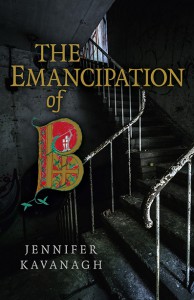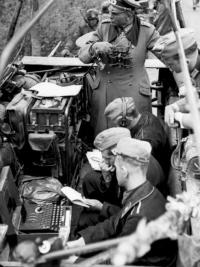
 By Jennifer Kavanagh
By Jennifer Kavanagh
Since leaving publishing in1997 (goodness!), I've written eight books. I started in 2002, and, like others, have found it addictive. Fiction has always been my love, and I always imagined that if I did write, it would be novels. So it was something of a surprise to find that it was to non-fiction that I turned.
That was until a couple of years ago, when a novel began to seduce me on to paper. It was a dark time. I'd just had a hip replacement, and was feeling imprisoned by the restrictions placed on me - thou shalt not bend, twist, drive, go on public transport, sit on a chair lower than the height of thy leg from foot to knee. Incarceration. They say that seeds germinate in the dark; the creative process emerges from dry and fallow times. And so it seemed. All I had at the outset was an image of the ending. As I began writing, I didn’t even know if this was the story of a man or a woman. (It turned out to be a man.)
Having worked in publishing for nearly thirty years, eighteen of them as a literary agent, working mainly with novelists, I thought I knew a little about novels. Having written six non-fiction books in the previous ten years, I imagined that I knew a little about writing. But, as I very tentatively entered into the process of writing a novel myself, I realised I knew absolutely nothing!
Seeing novels from the outside is completely different. I thought wryly of the work I had done in the past: reviewing, reading for publishers, cutting novels into serials for a mass market magazine. Sitting in judgment. And then, as an agent, making blithely clinical suggestions to novelists about how they could re-write their material. Fortunately re-writes weren't asked of me. I'd had no idea how once a passage has been written, worked over and seen as good, how glued to the page it seems to be. I am now working on a more commercial novel, and find there is more flexibility, and I can be more detached about what I have written.
As for the process, I know that there are those who can sit down in their studies, write the requisite number of words, and turn out a good, or at least publishable, novel. There are those for whom the discipline is essential, for whom 10% is inspiration, and the rest perspiration. In my thirties, I set about writing a novel in just such a way. I sat down every morning and wrote. I wanted to have written a novel, and I did. It was absolutely empty: I had nothing to say. So this time, I needed to understand better how it is that I - and this is personal - need to write.
The first thing that I learnt is how different novel-writing is. For non-fiction, there is a fairly clear sense of what the book is and where it is going; even if it changes in the writing, what is written comes from a fairly steady base of fact and opinion. There is a pre-determined subject, and the writer is ultimately in control. Although for commercial novels some of that might be true - there may, for instance, be a genre context - a "literary" novel may begin from an image, a character, a scene, even a phrase. And then, it seems, anything might happen. I had known in theory that, in the writing, characters might take over the book, but I had no idea of the interweaving of things felt and observed, the detritus of conscious and unconscious life. I found I could not make it happen, that often the best insights came on waking, on a train, or walking through the park. I needed to allow space for the creative instinct to emerge. I am disciplined by nature; I needed to un-discipline the process and allow the book to unfold.
Carrying a notebook is a cliché, but I hadn’t known how essential it would be for me, how inspiration - if that is what it is - may strike at any moment, and is unlikely to do so if I try too hard. On the other hand, it is true that engaging with the text so far will sometimes elicit an understanding of further development. Most of all, in the writing, I had no idea if what was on the page was any good, if it would in the end emerge as a novel. I had to let go of expectation, follow my instincts, and go forward in hope.
So, this was a much less comfortable journey than I was used to. I have been relieved at the response of the few who have read what is, I know, an odd book - from a dark interior time a small interior novel that reveals itself slowly, and yet seems to compel the turning of the page. And moves into the light.
I have learned a lot. To those, who like me, think they know it all, think again. To those who make their living out of writing novels - I salute you!
Jennifer Kavanagh's novel, The Emancipation of B is available from Roundfire Books.
eBook £2.99 || $4.99Feb 27, 2015. 978-1-78279-883-5.BUY | AMAZON US | AMAZON UKPaperback £7.99 || $13.95Feb 27, 2015. 978-1-78279-884-2.BUY | AMAZON US | AMAZON UK
Find out more about Jennifer here - www.jenniferkavanagh.co.uk
Categories:
0 comments on this article







